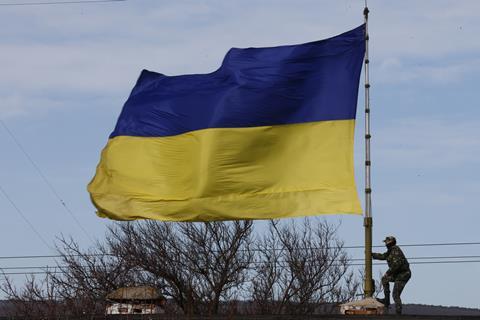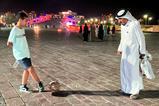There may be fewer and fewer headlines about the war in Ukraine but Europe is still in the middle of its biggest refugee crisis since World War II. Here International Justice Mission’s Frances Kordonowy shares the incredible work churches continue to do for those who need our support.

As we hit the six month mark, the war in Ukraine is beginning to slip out of the headlines. Sometimes it can feel as though the world is moving on. But Europe is still in the middle of its biggest refugee crisis since World War II – and it’s mostly women and children who are affected.
More than 5.2 million refugees have arrived in Europe from Ukraine since the war started, most of them women and children. They’ve already faced the trauma of fleeing war, often leaving their loved ones, communities and jobs behind. But for many, their situations are growing even more precarious now that their incomes and savings are running out. The longer they’re away from home, the bigger the challenge becomes.
Even more worryingly, the countries many refugees have arrived in are known hotspots for human trafficking, and have been since before the war began. Traffickers understand how to take advantage of people’s vulnerabilities: offering jobs or accommodation as traps, designed to trick them into exploitative situations. Once someone has been trafficked, it’s very difficult for them to leave, because traffickers know how to manipulate them through threats and coercion.
More than 5.2 million refugees have arrived in Europe from Ukraine since the war started, most of them women and children.
International Justice Mission (IJM) has worked on trafficking cases in Europe for the past two years, and we know just how brutal these exploitative situations can be. That’s why we were at the Romania-Ukraine border within twenty-four hours of war breaking out – to make sure that refugees knew about the risk of trafficking and how to stay safe. We’ve been responding to God’s call to protect vulnerable people, and thankfully we’ve already seen fruit from this – we’ve helped protect thousands of women and children.
An IJM social worker recently helped to safeguard a Ukrainian mother with two young children who had been offered accommodation by a man she didn’t know. The man wouldn’t give her an address but told her to meet him, so that he could take her there himself. Desperate for a home, she had accepted his offer until she told a member of IJM’s protection team, who identified it as suspicious and helped her to look into it further. She chose not to accept the offer and we helped her to stay in safe, vetted accommodation instead.
But what we’re now seeing is that as families run lower on resources, the risk of being tricked by traffickers is growing. We need to scale up our work as quickly as possible – and this is an opportunity for churches who want to put their faith into action to partner with us and help keep refugees safe.
A Ukrainian mother with two young children was offered accommodation by a man she didn’t know who wouldn’t give her an address but told her to meet him, so that he could take her there himself.
We’re already seeing churches across Europe step up in an amazing way. To give just one example, we’ve been able to partner with Pastor John, a Romanian church leader who is currently running five refugee centers. John was due to travel to the US for a month at the end of February but he told us that he felt God telling him not to go. When war broke out soon after, he said that he realised why God had called him in that way: he needed to stay in Romania and care for the people who were now fleeing across the border. Soon, vulnerable people started turning up on the doorstep of his church.
Incredibly, he found God providing all he needed for the church to support these refugees: from buildings which they’re now using to provide shelter, to the vans they use to drive medical supplies to vulnerable people in Ukraine and surrounding areas like Moldova. John’s church has already provided practical support to hundreds of people, helping them get settled in Romania. Speaking with John, it’s clear that his faith is at the heart of what he’s doing, which he sees as an opportunity to show love as a disciple of Jesus.
John’s church, and many others like his, are vital to keeping refugees safe from human traffickers. When refugees have safe accommodation and help accessing key resources, they are less likely to accept a false offer of help from a trafficker. That’s why IJM has been partnering with many more churches like John’s, to help educate them about how to safeguard refugees.
As the refugee crisis draws on and refugees run lower on resources, our partnerships with churches across Europe are going to be even more important.
IJM is a movement that is fuelled by prayer and generosity, and we’ve been so grateful to partner with churches in the UK and around the world who have prayed for and given to this important work. As the refugee crisis draws on and refugees run lower on resources, our partnerships with churches across Europe are going to be even more important.
There are many different ways to put your faith into action through getting involved in the anti-trafficking movement: you can join us in prayer, raising awareness of trafficking, or giving to our urgent appeal to scale up anti-trafficking programmes throughout Europe. Together, we can reach people before the traffickers do.
For more information about the work of IJM visit their website here.

The 2022 World Cup in Qatar is a wake-up call about labour exploitation – so what can the Church do to help?
A respectful, low-key London Fashion Week starts today but it’s still a reminder that we need to take action against exploitation in fashion supply chains
Ukrainian woman and children are now at a higher risk of trafficking for sexual exploitation or forced labour


































No comments yet